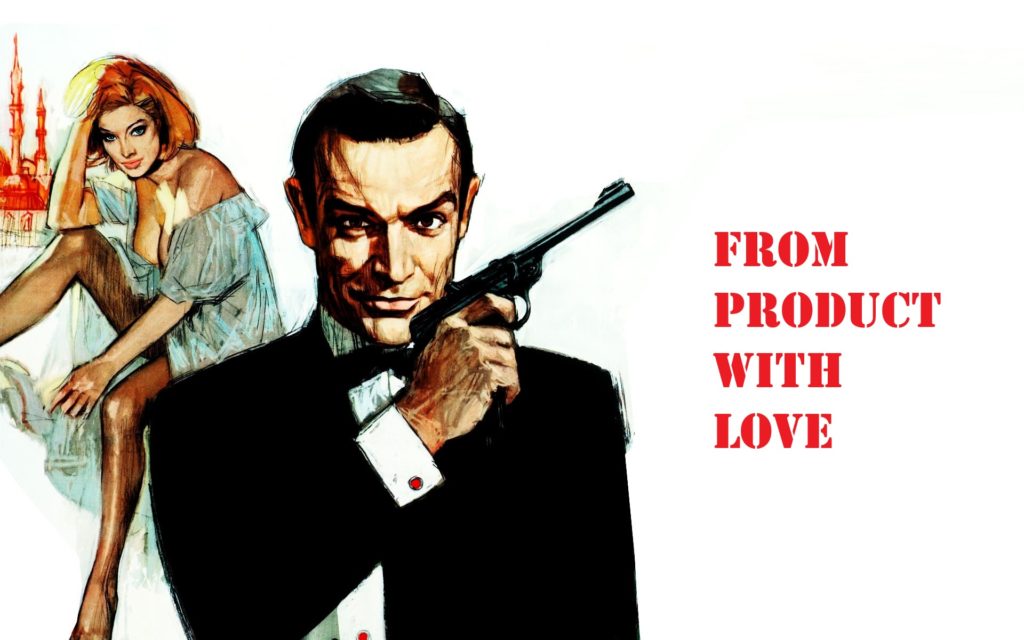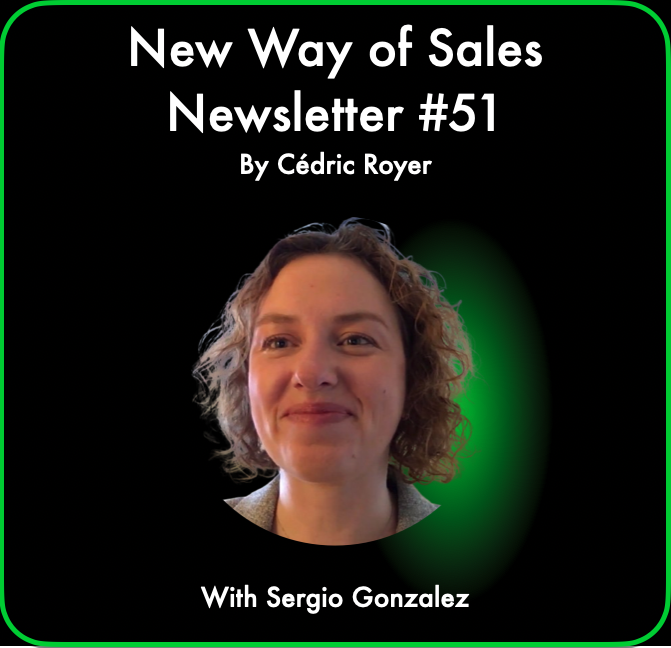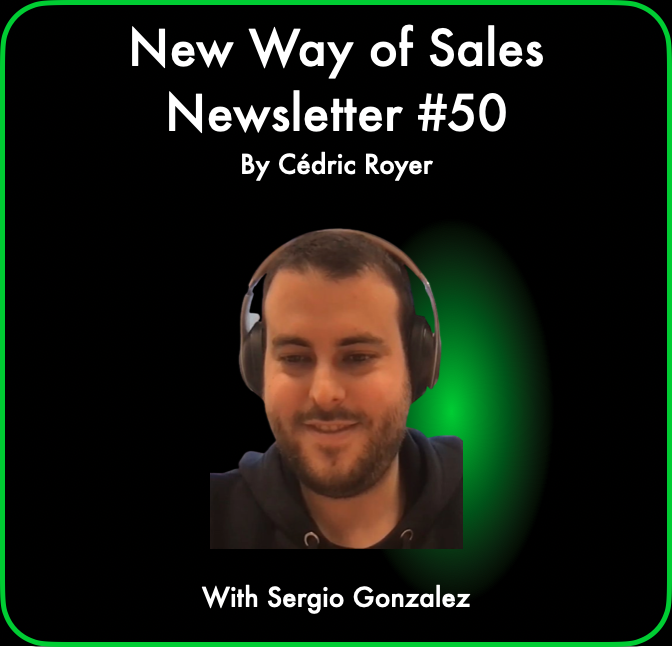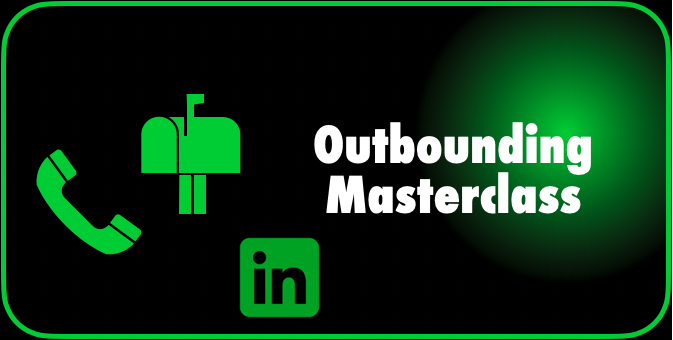(Also published on Medium on March 29, 2020)
I’ve built products over the past 18 years. I’ve had some great success, but there’s also been a lot of duds. Here’s some sage and simple advice to my young, eager product manager-self, and something that can elevate any PM or Product team’s game.
First, let’s quickly review the typical PM process at most companies. You build out your product and roadmap of features with a combination of:
- what customers or the Sales team wants
- what a big, important customer(s) says is important
- what the ‘market’ wants
- table-stakes features
- maintenance items
- improvements to existing features
- differentiated features that will really put you ahead of the competition
- moonshots
This gives you a good list of things to prioritize and pursue (who are we kidding, that last one never makes it on the product roadmap). The Sales team gets fired up — finally that awesome feature customers have been demanding will be here within the next quarter or so (give or take a couple quarters). Finally they’ve got something new and shiny to sell! You’re listening to the market, listening to customers, Engineering just has to execute. Everyone signs off, it’s all logical and makes sense.
I’ve got some news for you. You’re on a surefire path to mediocrity, and customers liking your product at best. I know, because I’ve done a lot of this in my product career! It’s not that you aren’t working hard or what you’re doing isn’t easy. Far from it. But while you’re busy executing on the above, guess what your competition is doing? The exact same thing. You’ll end up battling for marginal gains in market share with mostly undifferentiated products (regardless of how sexy the marketing copy is).
Sure, if the market is big enough, you and your company may do well enough. But every design win is going to be an uphill battle of attrition (with ever shrinking prices and margins) with you and your team constantly looking over your shoulders to see what the other guy is up to. The ultimate issue isn’t that you’re in a competitive market. The issue is that you’re doing the exact same thing as everyone else.
So time for that sage advice. Before you open any book on product management, or dive into any PM frameworks, intend to commit to one or more of the following:
- create only what you love (corollary: if you can’t/don’t love it, it’s probably not worth creating)
- no matter the tech, see everything you create as a piece of art
- strive for customer happiness and love
- deliver magic to your customers
Notice there’s no mention of competitors. There’s no mention of your company’s growth or revenue goals. Just love, happiness, art and a pinch of magic. Customer energy and love can’t be measured, it can only be felt. Customer adoption, retention, profits and the fact that you won’t have any direct competitors left will be your indirect measures that you’re doing something right.
Where the spirit does not work with the hand, there is no art.
— Leonardo da Vinci
This approach can only be borne from a deep passion and belief in what you’re doing and delivering to the world. Get your mindset and spirit aligned before doing the work. Be clear and explicit about your intent. Intention before action. Otherwise you will be rudderless and be thrown about by the relentless and unforgiving currents of the market. Every company has smart, talented, hard-working PMs, Engineers, Marketing and Sales teams. Competing on being smarter or working faster is a losing game. Be different and unique. Committing to the above will allow you to be just that.
Something will shift inside when you really commit to this. Your vision will expand and your focus will narrow (the exact opposite of how a lot of Product teams operate). Customer meetings, discussions with Engineering and Marketing, pitches to the Sales team will take on a very different vibe. There will finally be meaning vs. the spiritless promotion of another “meh” feature to “beat out the competition”.
There may still be competitors but it won’t matter. Anyone that’s still focused on beating you or the competition will be focused on the wrong thing and won’t be able to match you. They will ironically be left behind.
At the end of the day, product management is simple — it’s about loving what you’re creating, and in turn delivering that love in the form of a product or service to customers.
Don’t take my word for it. I’ll leave you with some wisdom from folks that know a thing or two about building great products and companies.
“Why not work on amazing products, and why not change the world?”
— Kevin Systorm (Founder, Instagram)
“You want to do something that you’re passionate about and where you get better, but competition per se is generally very destructive. You end up fighting over things that don’t matter. Paypal was successful as a business because it was dramatically better than the next best. It was better by a very big margin.”
“Monopoly is always a loaded word, but you want to be doing something unique. You don’t want to be doing something where you’re just a commodity.”
— Peter Thiel (Co-Founder PayPal, Palantir Technologies, Founders Fund)
“Zoom is a video-first, cloud based video conferencing service provider, and our vision is to build a friction-less video communications service to bring in happiness to the customers.”
“We truly believe if you can build a product customer really loves, better than any other solutions, no matter how crowded that market is, you have a great opportunity. I think Zoom also proved that.”
— Eric Yuan (Founder and CEO, Zoom Video Communications)
“Your major competitive advantage is likely something you like doing that most other people don’t.”
— Sahil Lavingia (Founder and CEO, Gumroad)
“I think that in many ways investors are looking for the wrong thing. I think what investors are looking for in early stage is growth. And I think what they should be looking for is love. They should be looking for how much the people love the product. The number one reason businesses go out of business is that people don’t truly love their product.”
— Brian Chesky (Founder and CEO, AirBnB)




